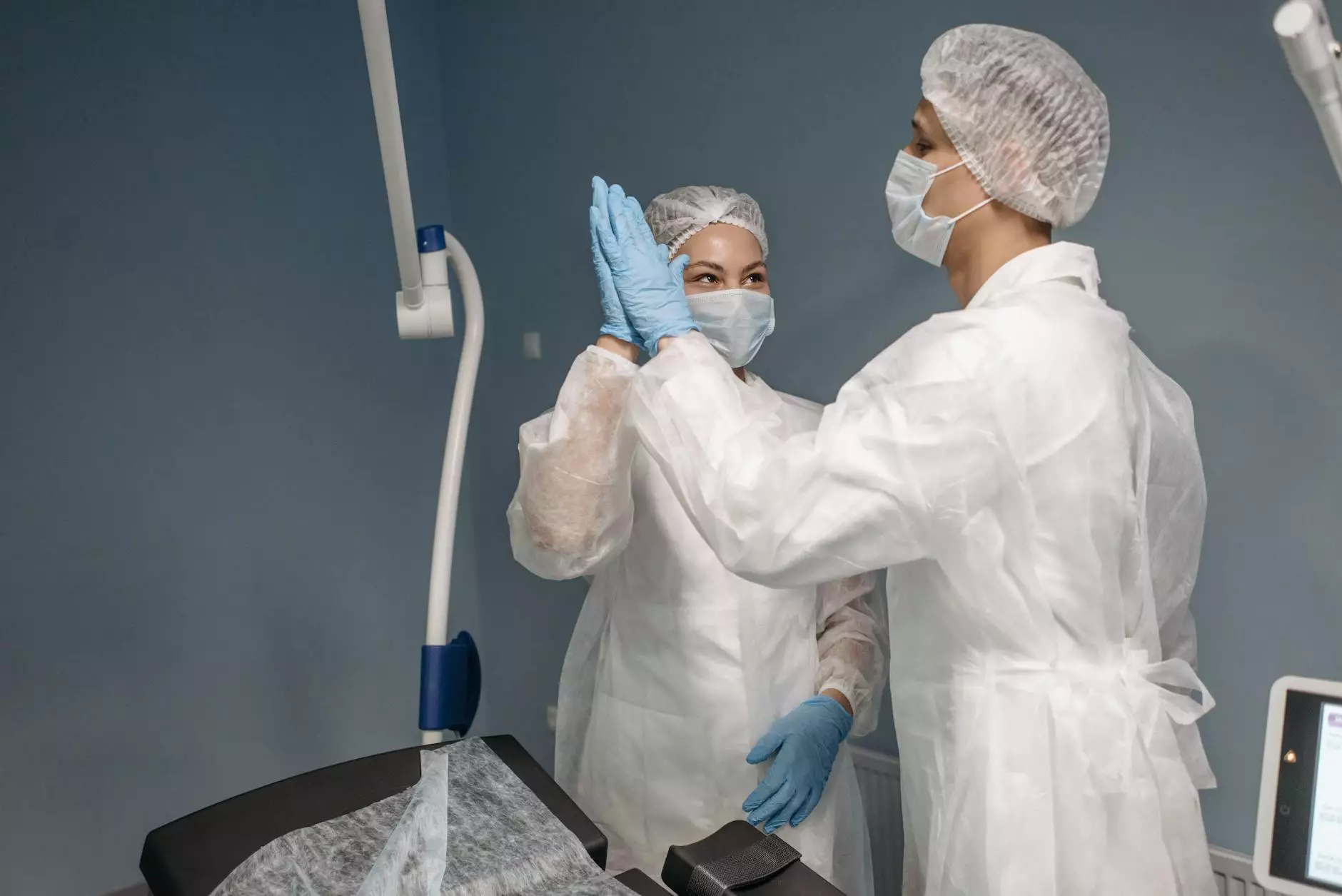Understanding Gastric Bypass Cost: A Comprehensive Guide

The decision to undergo a gastric bypass is a significant life choice, often motivated by the desire to achieve effective weight loss and improve overall health. However, one of the critical considerations in this journey is the gastric bypass cost. Understanding the financial aspects associated with this procedure is crucial for those contemplating surgery. This article delves deep into the gastric bypass cost, factors that influence it, and ways to make it more affordable.
What is Gastric Bypass Surgery?
Gastric bypass surgery is a type of bariatric surgery that helps individuals with severe obesity lose weight by altering the digestive system. It involves creating a small pouch from the stomach and connecting it directly to the small intestine. This reduces the amount of food the stomach can hold and decreases nutrient absorption. The surgery has shown remarkable success in promoting significant weight loss and resolving obesity-related health issues.
Factors Affecting Gastric Bypass Cost
Several factors influence the gastric bypass cost, which includes:
- Geographical Location: The cost of medical procedures can vary widely depending on the region. Urban areas generally have higher costs than rural locations.
- Hospital or Surgical Center: Different facilities have different pricing structures. Hospitals with higher reputations and advanced technology may charge more.
- Surgeon's Experience: A highly experienced and skilled surgeon may charge more for their services; however, their expertise can also lead to better outcomes.
- Type of Gastric Bypass Procedure: There are several types of gastric bypass procedures, such as the Roux-en-Y, which may have varying costs based on complexity.
- Insurance Coverage: Many insurance plans cover gastric bypass surgery, but coverage varies widely. Some patients may only pay a deductible, while others may face higher out-of-pocket expenses.
- Pre-Operative Requirements: Many patients must undergo several pre-op evaluations and consultations that may affect overall costs. These can include psychological evaluations, nutrition counseling, and medical assessments.
- Post-Operative Care: After surgery, follow-up visits and any necessary treatments contribute to the overall cost.
Average Gastric Bypass Cost
The average gastric bypass cost in the United States typically ranges from $20,000 to $35,000. However, it's essential to understand that this is just an estimate. Costs can be higher or lower depending on the factors listed above. Some patients have reported entire costs totaling over $50,000 due to complications or extended hospital stays.
Insurance and Gastric Bypass Surgery
Insurance coverage for gastric bypass surgery can significantly reduce out-of-pocket expenses. However, the process of obtaining approval can be convoluted. It's essential to check with your insurance provider for specific details regarding coverage, as policies can differ greatly. Here are steps to consider:
- Contact your insurance provider and inquire if gastric bypass surgery is covered.
- Understand what pre-operative requirements you must fulfill for approval.
- Get a list of approved facilities and surgeons within your network.
- Consult with your healthcare provider for help in the appeal process if necessary.
Financing Options for Gastric Bypass Surgery
If insurance does not cover the gastric bypass cost or if you are uninsured, several financing options can help manage expenses:
- Health Care Financing Plans: Many surgical facilities offer financing options that allow patients to pay for procedures in installments. Look for facilities that partner with healthcare lending companies.
- Personal Loans: Consider applying for a personal loan through a bank or credit union. Loan amounts and interest rates will vary based on your credit history.
- Credit Cards: Some individuals use credit cards to finance medical expenses. Be cautious with high-interest rates, and ensure you can manage the debt responsibly.
- Medical Crowdfunding: Platforms like GoFundMe allow individuals to raise money for medical procedures by sharing their stories with friends and family.
What to Expect Before, During, and After Gastric Bypass Surgery?
Before Surgery
Prior to undergoing gastric bypass surgery, patients must engage in a comprehensive pre-operative process. This often includes:
- Medical assessments to evaluate overall health and readiness for surgery.
- Consulting with a nutritionist to understand dietary changes.
- Psychological evaluations to ensure mental preparedness for the lifestyle changes ahead.
During Surgery
The gastric bypass surgery typically takes about 2 to 4 hours and is performed under general anesthesia. The main steps include:
- Making small incisions (or a larger incision, depending on the method).
- Creating the stomach pouch.
- Connecting the new pouch to the small intestine.
- Closing the incisions securely.
After Surgery
The recovery period can vary, but patients usually stay in the hospital for 2 to 3 days. Post-operative care includes:
- Adhering to a specific diet that transitions from liquids to solid foods gradually.
- Regular follow-up appointments with the surgeon to monitor recovery.
- Possibly engaging in support groups or counseling to address emotional and psychological changes.
Long-Term Considerations and Lifestyle Changes
Gastric bypass is not simply about the initial surgery; it requires substantial long-term commitment to lifestyle changes. Following surgery, patients must:
- Adopt a healthier diet focused on proteins, vegetables, and fruits while avoiding high-calorie and sugary foods.
- Engage in regular physical activity to maintain weight loss and improve overall health.
- Attend ongoing medical and nutritional assessments to prevent complications and ensure proper nutrient intake.
Risks Associated with Gastric Bypass Surgery
While gastric bypass surgery has many benefits, there are risks involved that need consideration:
- Potential complications during or after surgery, such as infection, blood clots, and leaks in the gastrointestinal tract.
- Nutritional deficiencies due to restricted food intake, necessitating lifelong vitamin supplementation.
- Psychological effects related to the drastic lifestyle changes.
Conclusion
Understanding the gastric bypass cost is a pivotal aspect of the decision-making process for those seeking this life-changing procedure. While the financial implications can be daunting, resources and financing options are available to help make this investment in health more manageable. Ultimately, the rewards of successful gastric bypass surgery—improved health, increased mobility, and enhanced quality of life—may far outweigh the costs involved. As you embark on this journey, remember to consult with health professionals to ensure you are fully informed and prepared for the path to a healthier future.









